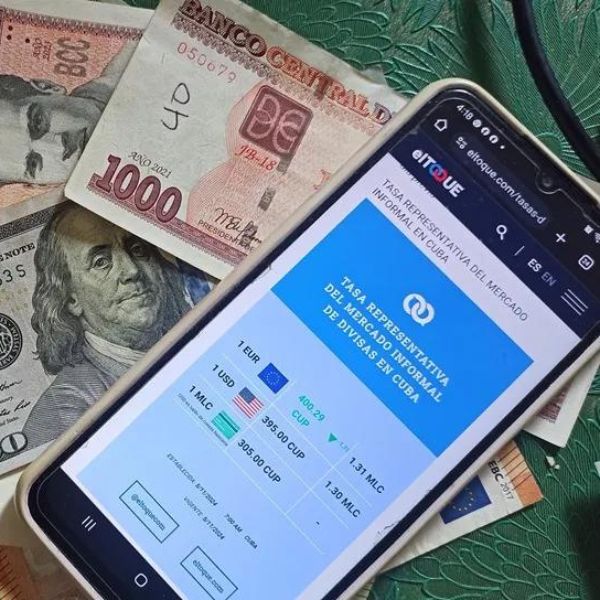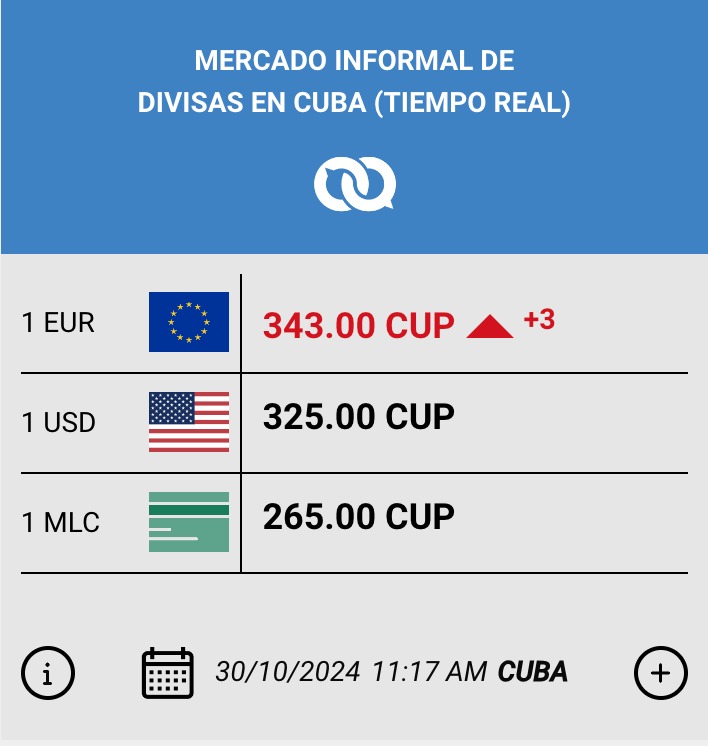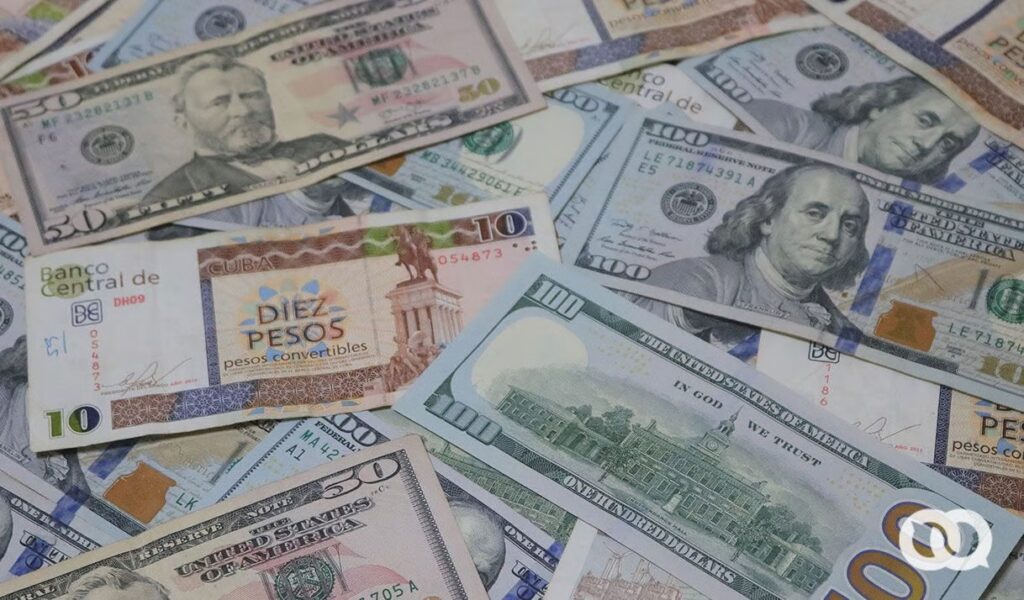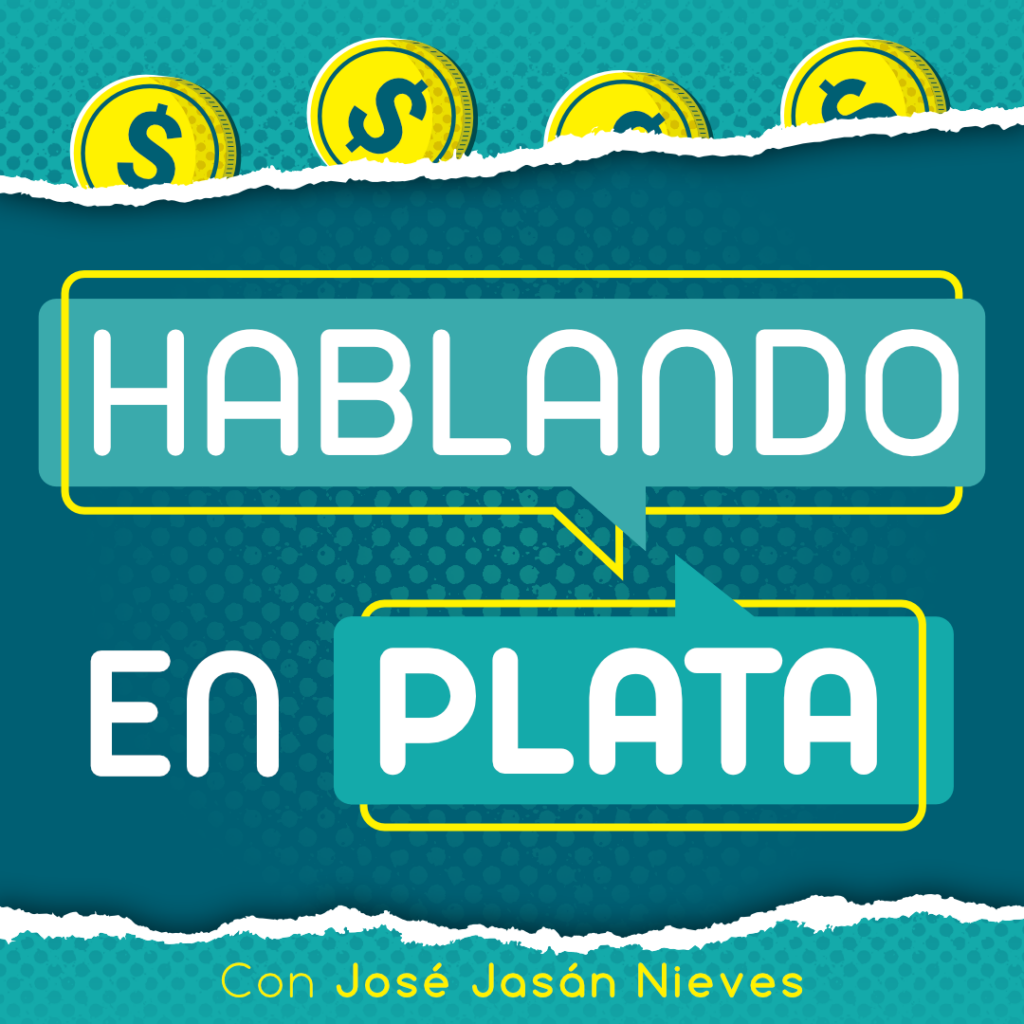By Juan Palop Havana (EFE) — The collapse of the Cuban peso in the informal market and its recent fluctuations have sparked public doubts and a campaign in official media against the independent digital newspaper El Toque, which publishes the exchange rate that has become a street reference.
The media campaign intensified as the dollar rapidly approached 400 pesos, but in recent days, the Cuban currency has strongly appreciated, causing confusion among citizens.
The attacks claim that the depreciation of recent months is artificial, intentional, and politically motivated. They even talk about «financial terrorism.» According to these media outlets, without providing evidence, El Toque is a “puppet of Washington’s economic war” and part of a strategy to incite a social explosion in Cuba this summer.
Among ordinary Cubans, skepticism prevails. For many, who need to buy foreign currency with their scarce pesos to manage day-to-day expenses in an increasingly dollarized economy, the rate is a mirror of their eroding purchasing power.
El Toque Denies Any Political Motivation
El Toque’s editor-in-chief, José Jasán Nieves, denies any political motivation to EFE and believes that official circles use them as a «scapegoat» to avoid confronting their responsibility in the country’s crisis and undertaking necessary reforms.
«We have no connection to any conspiracy of any name or political sign. Our job is to inform,» says Nieves, who left Cuba in 2019 because he believed it was no longer «safe» for him to continue practicing journalism on the island.
He acknowledges that the mechanisms for establishing the exchange rate and the theoretical concepts that support it are complex. He also notes that the rate may not be perfect but emphasizes that it reflects the severe deterioration of the economy.
The combination of the pandemic, the tightening of U.S. sanctions, and mistakes in national policies have worsened structural problems in the Cuban economy.
Gross Domestic Product (GDP) ended 2023 below that of 2019. Formal inflation, which exceeded 77% in 2021, has been around 30% since then. The government forecasts a fiscal deficit of 18.5% in 2024.
On the street, this translates to shortages of basic goods, power outages, a lack of cash, despair, and an unprecedented wave of migration.
However, the official rate has been set at one dollar for 24 pesos for legal entities and one dollar for 120 pesos for individuals since 2022.
An Algorithm to Track the Exchange Rate
El Toque explains that it uses an algorithm, without human intervention, to monitor currency buy-and-sell ads on forums and social networks—2,695 on Wednesday alone—and filters out anomalous and extreme values. The process is supervised by renowned Cuban economist Pavel Vidal.
EFE consulted five other Cuban economists, all of whom find the method reliable, though with limitations (such as capturing the value of offers rather than final transactions, or using the median rather than the mode as the rate).
Two believe the indicator does not influence the market, while two others say it affects expectations. Several refer to the informational void it fills, and most emphasize that the peso’s depreciation is explained by the country’s structural problems.
Nieves speaks of a «feedback loop» between the market and the indicator because the rate has become the reference. However, he argues that if it were far from popular perception, «it would not be given any attention.»
Regarding the attacks, he believes that the Cuban «propaganda and security apparatus» «confuses and lies.» He notes that the attacks began when the rate became a reference and that by 2022, a «repressive campaign» had already dismantled his team on the island.
He clarifies that although El Toque receives significant traffic from the rate, it does not have «economic dependence» on those visits because 70% come from Cuba, and the island, due to U.S. sanctions, «does not monetize on international platforms.»
EFE has requested an official statement from the Cuban government but has not received a response after a week.
Taken from: EFE














